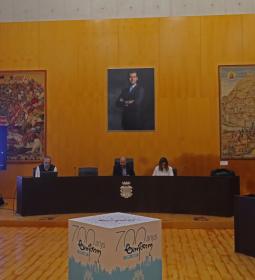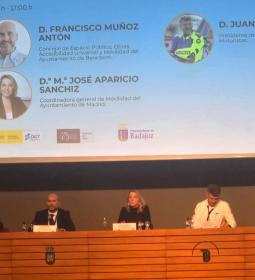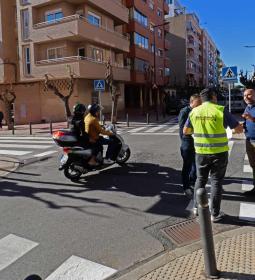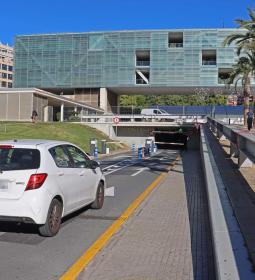A study advises Benidorm not to implement its own network of urban buses

The points out that separating the urban and inter-city lines would affect the quality of the service and would cost "2 or 3 million euros" for the City Council
Recommend to create a local network
A study commissioned by the City Hall to an external consultancy advises Benidorm not to implement an own network of urban buses. This report, received a few days ago and which has already been copied to all political groups, responds to a Citizens' (C's) motion approved in plenary session and which called for "a study to determine if it would be profitable for the Consistory to directly tender the transport of urban buses in Benidorm "and to leave" in the hands of the Consell the interurban service ". The study examines the current situation of collective transport in the area of Benidorm, provided by two different operators that have lines linking different towns in the region and, in the case of the city, also deals with urban traffic. These two concessions "are expired or in doors of expiration". The conclusions of this study argue that "the segregation of networks", the transition from urban to interurban, "in addition to impoverishing in principle the quality of public transport in general" would mean for the Benidorm City Council "a cost in terms of Subsidy of 2 or 3 million euros, if it intends to maintain the current level of service. " In addition, local users "would be affected by the foreseeable increases in transhipment between the urban and interurban network" and would also be detrimental to sustainable mobility; While for other municipalities the inter-urban network - if not subsidized - "should reduce its frequencies" with the disturbances that this would produce to the users. For all these reasons, the Consistory considers "the convenience of maintaining, in general terms, the current network of local public transport." An alternative to this separation of urban and interurban networks that necessarily passes through "the acquiescence of the other affected municipalities". In order to try to implement a regional public transport system in line with the Valencian Community Mobility Law, the study recommends the development of a "pedagogical sheet" that facilitates the incorporation of the rest of affected localities and in which the Generalitat Valenciana takes part . In drawing these conclusions the study has analyzed and taken into account, among other issues, socioeconomic data, the current district transport network presented by Llorente Bus SA and UBESA, the consequences of the segregation of public transport networks, surface and distance limitations, operating costs of services, possible surcharges for travelers and the effects on traffic in Benidorm. The councilman of Mobility, José Ramón González de Zárate, said that in the next plenary session "he will take note of this report", adding that in view of the conclusions "it does not seem appropriate to ask the Generalitat Valenciana to rescue the Urban concession in favor of the Town Hall ". When it comes to exploring new routes, De Zárate indicated that "the simplest option seems to be to sign an agreement with the concessionaire to improve the conditions of the service provided to users, and especially with respect to tariffs for residents ".




